Slow Action (2011)
ジャンル : サイエンスフィクション
上映時間 : 46分
演出 : Ben Rivers
シノプシス
Slow Action, Ben Rivers’ first exhibition at Matt’s Gallery, is a post-apocalyptic science fiction film that brings together a series of four 16mm works which exist somewhere between documentary, ethnographic study and fiction. Continuing his exploration of curious and extraordinary environments, Slow Action applies the idea of island biogeography - the study of how species and eco-systems evolve differently when isolated and surrounded by unsuitable habitat - to a conception of the Earth in a few hundred years; the sea level rising to absurd heights, creating hyperbolic utopias that appear as possible future mini-societies. This series of constructed realities explores the environments of self-contained lands and the search for information to enable the reconstruction of soon to be lost worlds.
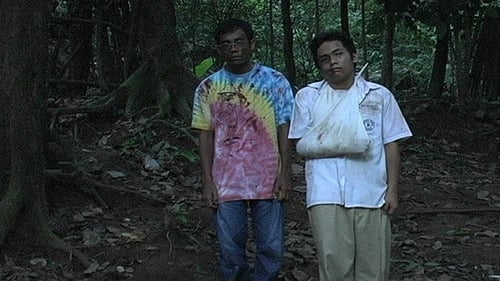
Mix-mastering history, the paranoid thriller, the documentary and the landscape film, pic tells of very different fates for two sets of brothers in oppressive Philippine settings.

An unknown observer is seen traveling through a bleak corridor. At the end of the corridor they see a naked woman, whom they are unable to reach as their trip seems to become increasingly twisted and looped.

A 1988 documentary film directed by Alexander Sokurov, about the later life and death of Soviet Russian filmmaker Andrei Tarkovsky. The film was originally intended to mark the 50th birthday of Tarkovsky in 1982, which would have been before his death. Controversy with Soviet authorities about the film's style and content led to significant delays in the production.

a film by Apichatpong Weerasethakul

This small film came out of the material edited for Sokurov's five-hour documentary Spiritual Voices.
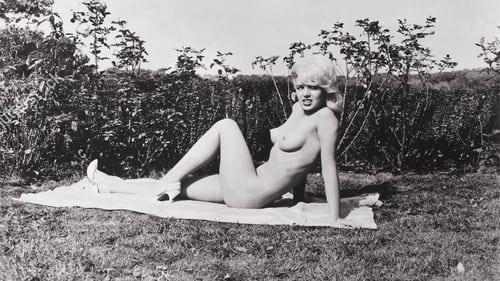
An inexperienced producer and director audition and film naked women for a nudie movie. Everything goes wrong.

Independent film featuring modern dance in a forest, with the performers wearing white fabric costumes.

A fragmented road trip through Britain on the peripheries. Down empty roads, off in the wilderness, a few lone stragglers.
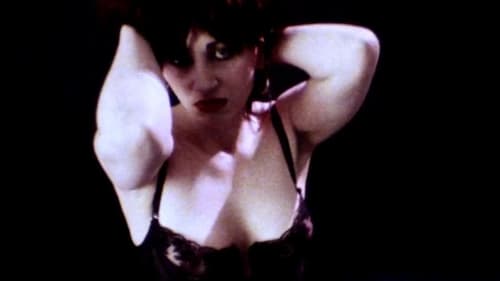
Oddballs dancing, leering at camera, guy shaving a nontraditional part of his body and man ripping his own throat out, woman stabbing herself to death.

Avant garde/experimental film. A mesmerizing trip through the psychedelic vastness of space.

Four prisoners, in convicts' stripes, march backwards down stairs and, under the watchful eyes of guards, hop backwards into their cells. Later, one overpowers a guard and springs his three pals. But, will they be able to pull off an escape? Other guards come to the aid of their fallen comrade before all four felons can flee. Guards and convicts spring forward and backward out of cells, up and down stairs, and into and out of freedom.

Based on a Muehl Happening. The almost convulsive use of juxtaposition reappears here, but the captured gesture assumes a more erotic sensitivity, though the "action" itself was primarily a gradual destruction of the erotic.

"Blushing Charlie" - Truckdriver and bachelor Charlie meets homeless and seven months pregnant Pia. They both dream of finding someone to share their lives with. Charlie then faces a dilemma whether to take part in a demonstration in favor of Cuba, and in addition with his employer's truck.
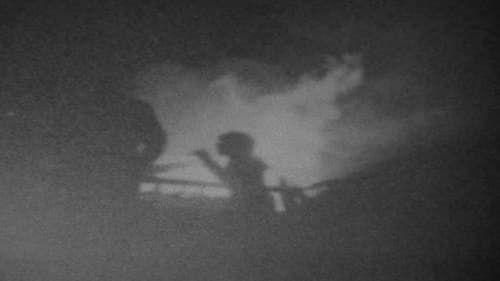
A family's place in the wilderness, outside of time; free-range animals and children, junk and nature, all within the most sublime landscape. The work aims at an idea of freedom, which is reflected in the hand-processed Scope format, but is undercut with a sense of foreboding. There's no particular story; beginning, middle or end, just fragments of lives lived, rituals performed.

Inspired by Flaubert’s Madame Bovary, Sokurov’s Save and Protect recalls the most crucial events of Emma’s decline and fall: affairs with the aristocratic Rodolphe and the student Leon, the humiliation that follows her husband’s botching of the operation on the stable boy’s clubfoot. The universality of the theme of eternal struggle between the soul and the flesh is conveyed through the absence of specific reference to time or place: although the film seems to begin in 1840, its surreal mode effortlessly accommodates an automobile and the strains of “When the Saints Go Marching In” on an off-screen radio. Focusing on passion from a woman’s perspective and downplaying plot, Sokurov explores his subject in exquisite detail, capturing not only the heat of passion but also the quiet moments before and after and the innocent sensuousness of the body.

A documentary of the life of record collector Joe Bussard.

Kalina links traditional animation with a re-projection. To the rhythm of the popular folk song Ukochany kraj, umiłowany kraj (Beloved country, dear country) he creates an anti-ballade about the farmer’s hard life and difficult work. Monotonous and mechanical activities degrade a man.

“I could do wonders if I didn't have a body. But the body grabs me, it slows me, it enslaves me.” -- Ponce de Léon Our PONCE DE LEÓN discovered the fountain of youth and drank of immortality in the waning moments of his life. In an instant, he became old forever – an 80-year old Spaniard who would continue to walk the earth for century after century after century, watching as coral foundations gave way to mangrove swamps, as swamps were drained and buildings were erected, as buildings decayed and swamps returned. Our PONCE DE LEÓN is an immortal for whom time poses the greatest dilemma – it is a constant, a given, and his personal battle lies in trying to either arrest time entirely or to make the hands on his clock move ever faster. For Ponce de Léon, time is a problem of body, and only by escaping his container can he escape time itself.

About an aspiring author who wakes up from a 27-year coma as one of his country's finest authors, credited for a book he didn't write.
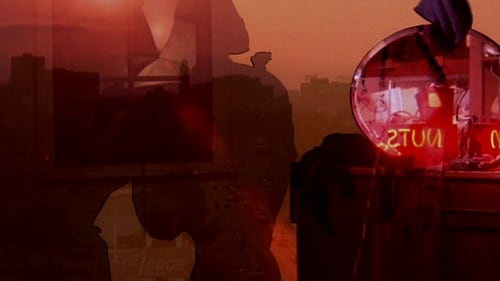
Pat O'Neill, one of the most interesting filmmakers in America today, offers a dazzling reflection on the conflict between nature and man in Los Angeles, or the desertification of the city's surroundings due to its enormous water consumption. More interestingly, it is also a film in the age-old tradition of city symphonies: a film about LA's foundation myths and the dreams it embodies, about its history and (grim) future, its topography and ethnography. O'Neill uses footage from several classic films to recreate the several layers of meaning emanating from the city, juxtaposing images and fantasies and hardly ever allowing one picture to go untouched. George Lockwood's swarming soundtrack is likewise composed of conflicting languages, an elaborate work of plunderphonics in which snippets of sound stolen from movies collide with electronic soundscapes, contemporary chamber music, improv, and what not.









